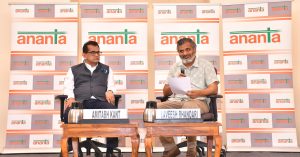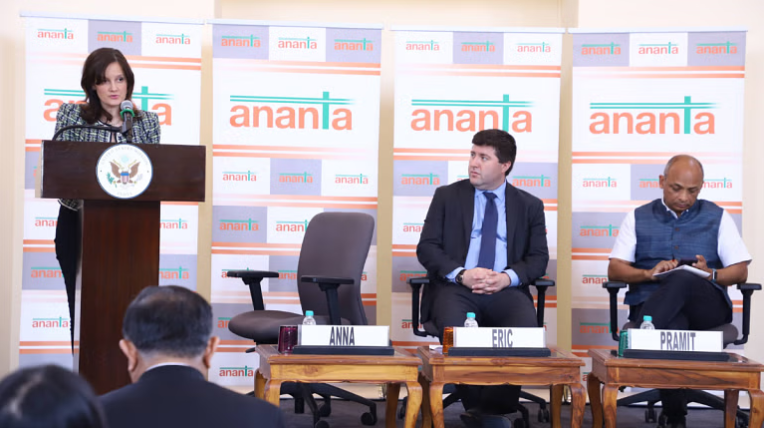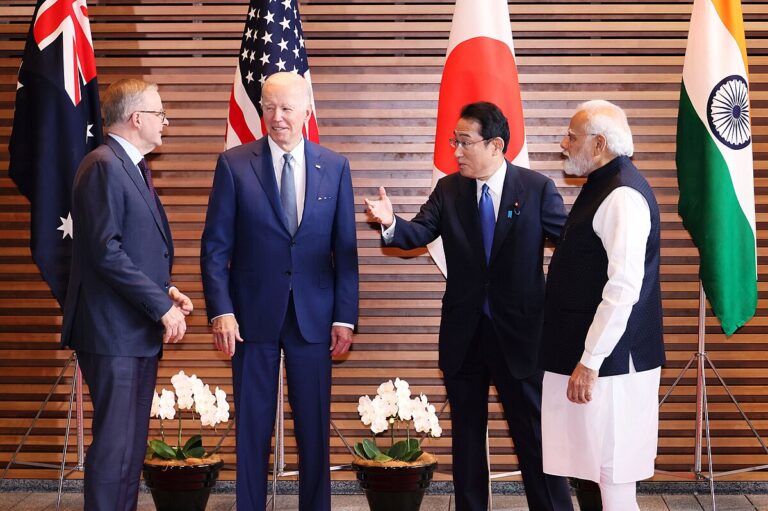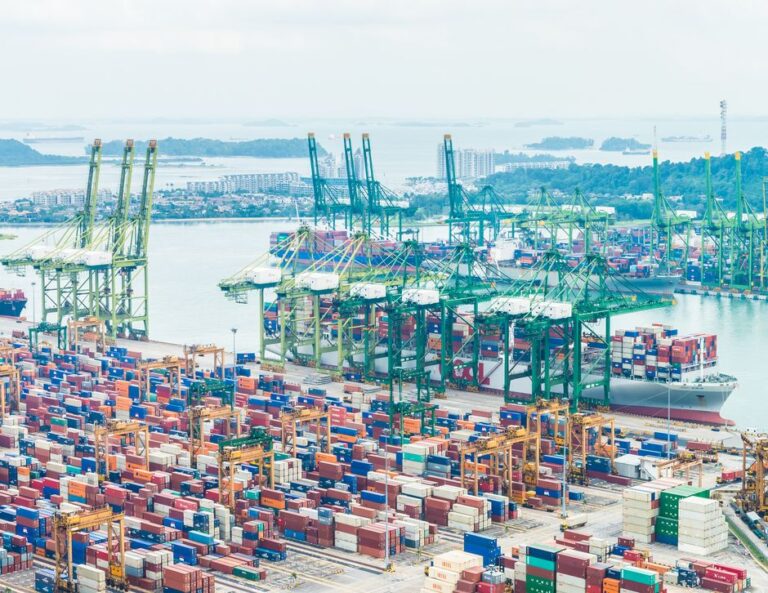Russia-US: telephone talk, bilateral talks, “foreign hand” & Afghan “bounty”
The month started on an upbeat note for US-Russia relations, with a telephone call to President Putin from President Trump, in which (as per the Kremlin readout) the Russian President thanked his US counterpart for the timely donation of ventilators, the two Presidents congratulated themselves on piloting the OPEC+ agreement on oil production caps, and President Trump informed his counterpart about his idea of inviting Russia (and India, Korea and Australia) to the G7 summit he would be hosting. They agreed to continue dialogue on arms control and contacts “at various levels”. In a neat touch President Putin congratulated the American President on the successful launch of the Crew Dragon, which signalled the end of NASA’s dependence (since 2011) on Russian rockets and the Kazakh spaceport for its space launches.
At a joint press conference with the Polish President on June 25 President Trump said about Russia, “we have a very good relationship” and “we are working on other things”, including an arms agreement – not exactly music to the ears of his Polish guest or Polish TV, which had asked a question on US-Poland relations. At the same time, he did please his guest by fulminating about Germany “paying Russia billions of dollars to purchase energy” [through the Nordstream 2 pipeline] and endorsing the Poland-driven Three Seas Initiative, which would instead promote US LNG imports into Central Europe.
US and Russian delegations met in Vienna on June 22 to discuss “strategic stability”, including the fate of the new START arms control treaty which lapses early next year. President Trump had declared (in the above-mentioned press conference) that the talks were proceeding well, since both countries are keen on an arms agreement. The Russian MFA put out a more sober assessment. As per MFA, the Russians wanted to invoke the provision for a 5-year extension of the existing treaty, since there is not sufficient time to negotiate a new treaty. The US insisted that China be included in any further arms control agreement. The Russian position is that it is open to a multilateral discussion, subject to the agreement of all parties. In other words, if the US wants the Chinese to join these discussions, it is for the US to bring them to the table. Russia adds its own topspin lob that, in that eventuality, America’s NATO allies, France and the UK, should also be drawn into the negotiations.
Russia’s proposal for a Russia-NATO moratorium on the deployment of ground-based medium- and shorter-range missiles (following the termination of the INF Treaty) did not find US acceptance. Russian efforts to secure endorsement of the Europeans, who are literally in the firing line, have not yet been successful.
Importantly, the two sides agreed to continue the dialogue on arms control and to extend it to issues of space security, including weaponization of Outer Space – in the context of the US Space defence strategy.
On the negative side of the US-Russia ledger was an announcement by the US Embassy in Kiev about the deliveries of lethal US weaponry to Ukraine, including Javelin anti-tank missiles. Russia’s position (with which European countries like France and Germany silently concur) is that such supplies would make the implementation of the Minsk agreements more difficult. Russia also routinely protests that regular onshore and offshore US-Ukrainian joint military exercises, as well as the presence of 1,500 American instructors with the Ukrainian army, violate the Minsk agreements, which stipulate the withdrawal of all foreign troops and military equipment from the territory of Ukraine. Russia expressed its disapproval of NATO’s announcement (on Russia Day, June 12) of its decision to recognize Ukraine as an Enhanced Opportunities Partner, though there was a tacit recognition that this was a formalization of an already established reality. For the record, President Putin’s press advisor declared that if NATO military infrastructure gets closer to Russian borders, Russia would be forced to take appropriate measures to ensure its security. There was similar Russian criticism of the reported US proposal to shift some troops from Germany to Poland. Russia pointed out that it (a) was a violation of NATO’s obligation, under the Russia-NATO Founding Act of 1997, “to abstain from additional deployments of significant combative forces” in the new NATO countries; and (b) would force Russia to consider consequences for regional security, particularly the security interests of Belarus.
As the US Presidential election campaign gathers momentum, indications are that the “Russian hand” will increasingly figure in the political discourse. Democratic politicians have publicly alleged that the violence in the nationwide protests on police brutalities against blacks may have been fomented by the Russians, along with white supremacists. Former US NSA Susan Rice and Senator Chris Murphy have been vocal on this, though no evidence has been quoted. Towards the end of the month, the New York Times carried a story, quoting an anonymous US intelligence source, about Russian military intelligence having promised a “bounty” to the Afghan Taliban to kill US and other coalition troops in Afghanistan. The story took wing, despite scepticism in some quarters, including former Trump NSA (and now trenchant Trump critic) John Bolton, about its veracity. The focus of the story was on whether President Trump had been briefed on this and, if so, why he had not taken action against Russia in retaliation. White House assertions that this unverified input had not been brought to President Trump’s notice did not suppress the narratives of President Trump being soft on Russia and the Russians favouring a Trump re-election. President Putin may have reinforced the latter impression by his comment that the Black Lives Matter protests were organized by Trump’s political enemies, “who have been using illegal means and circulating lies to undermine the authority of a democratically elected leader”.
President Trump explained the withdrawal of about 25000 (of the total of 52000) US troops from Germany and their redeployment elsewhere as a reaction to Germany’s inadequate budget contribution to NATO adding, for good measure, the incongruity of Germany paying Russia billions for gas and then expecting the US to protect it against Russia. While this makes for good theatre, Secretary of State Pompeo (after dutifully echoing the Trump points) explained, at a European forum, the real strategic thinking behind the decision. He said the US has conducted a strategic review of its global force posture over the past two and a half years. In current circumstances, the capacity to deter adversaries is no longer determined only by the size of ground forces. The allocation of resources to the armed forces, intelligence community, cyber professionals and others would depend on the nature and sources of conflicts. The movement of some troops out of Germany is an outcome of decisions on how the US will posture its resources around the world. This will mean fewer American resources in some places and more in others. About the latter, he highlighted threats from the Chinese Communist Party to India, Vietnam, Malaysia, Indonesia, Philippines and the South China Sea. America’s strategy, he said, is to ensure adequate resources in place to have an appropriate posture to counter the PLA.
India-Russia political, defence and economic engagement
India’s Defence Minister attended the 75th Victory Day celebrations in Moscow on June 24 (postponed from May 9, because of Covid). The event was attended by the leaders of the Eurasian Economic Union countries (except Armenia), Central Asian countries (except Turkmenistan), Serbia, Moldova and the two Georgian breakaway Republics (which only Russia and a handful of other countries recognize). At the 70th anniversary celebrations in 2015, the Presidents of India and China were both in attendance. This year, China also deputed its Defence Minister. A tri-services Indian Armed Forces contingent participated in the parade, along with contingents from China, Mongolia, Serbia, and nine former Soviet republics.
The Defence Minister’s visit provided a timely opportunity to discuss defence cooperation with his Russian counterpart in the joint commission for defence cooperation, Deputy Prime Minister Borisov. The media reported that the discussions included the prospects of fast-tracking deliveries of the S-400 air defence system and early conclusion of negotiations for supply of MiG29 and Su30 fighter aircraft. The Minister confirmed to the media that he was assured that current contracts will not only be executed, but in many cases will be expedited. The Russian media quoted an Indian military official as saying he hoped to see the S-400 at the Republic Day parade in January 2021.
Meanwhile, the Indian and Russian media reported that the Indian government had set up a committee to sort out “difficulties” in the India-Russia joint venture for manufacture of Kalashnikov’s AK-203 assault rifles in India. The main issue seems to be how the technology should be priced. It is not clear if it was discussed during the Defence Minister’s visit. It is in the long-term interest of India-Russia defence cooperation that issue is resolved pragmatically, since such a joint venture model is the most practical approach to resolving the issues around price and availability of components and sub-systems for the Russian-made weapons platforms with the Indian armed forces.
An interesting sidelight on these developments was a comment in the Russian language edition of the People’s Daily (the official publication of the Chinese Communist Party), on the eve of the Defence Minister’s visit, that Russia should not supply India with weapons “at sensitive moments”, since the two Asian powers are both Russia’s close strategic partners. Chinese diplomats and defence officials are known to take up with their Russian counterparts the subject of Russia’s defence cooperation with India and Vietnam, but the subject is not aired in the media. Russian media also mentioned another item in a Chinese portal, Sohu, reportedly expressing concern that India is interested in the latest generation Russian main battle tank, Armata T-14, and may become its first foreign buyer.
The Russia-India-China ministerial meeting, originally scheduled to commemorate the 75th anniversary of victory in WWII, as well as of the United Nations, went ahead as scheduled, despite the ongoing faceoff of Indian and Chinese troops across the LAC. An anodyne press release said the Ministers “expressed their shared understanding of the need for searching for a response” to the multiple challenges arising from the coronavirus pandemic. They noted the central coordinating role of the United Nations, reaffirmed commitment to the principles of international law enshrined in the UN Charter and rejected attempts to use the current crisis for unilateral benefits to the detriment of the security and interests of other countries.
Russian FM Lavrov said in a media briefing that Russia conveyed its view that unilateral sanctions, illegal use of force and interference in internal affairs of countries are counterproductive, and the three countries will coordinate to counter these negative trends. He added that India’s forthcoming membership of the UN Security Council (UNSC) in 2021-22 would provide the opportunity of the three countries coordinating actions on international issues. In this context, he emphatically expressed Russia’s support for India’s permanent membership of the UNSC. He has not done so in the past, without hedging the support with the caveat that UNSC expansion requires a broad consensus. He went on to say that the Ministers discussed cooperation in the Asia-Pacific Region, emphasised that cooperation should be intensified in “the framework of the entities that have been created here in recent decades” and consider it “critically important” to reinforce the ASEAN-centric interaction (in other words, the Indo-Pacific is not a valid framework). This is a strongly-held Lavrov (and Russian MFA) view, convenient to the Chinese, but obviously not shared by India, which is why it did not find its way into the press release, just as was the case with his assertion that the three countries had overlapping or similar approaches to the key problems of our time.
In his opening remarks at the RIC meeting, India’s External Affairs Minister Jaishankar subtly reminded his interlocutors of the sacrifices across many theatres of the war by Indian soldiers, included helping to keep key supply lines open to both Russia and China, “one through the Persian corridor and the other over the Himalayan hump”. He said the RIC countries should “converge on the value of reformed multilateralism”, pointedly also emphasizing that a durable world order can be built only if the “leading voices of the world” (obviously including RIC) respect international law, recognize the legitimate interest of partners, support multilateralism and promote the common good.
Russia carefully steered clear of the temptation to offer mediation in the ongoing India-China dispute. Asked about this by the Russian media, FM Lavrov said India and China do not need assistance to resolve their disputes, since they have multiple mechanisms for dialogue at all levels.
The Russian news agency, Sputnik, reported that Indian and Russian officials are in the final stages of framing the terms and conditions of disbursal of the one billion-dollar line of credit for the Russian Far East, announced by PM Modi at the bilateral summit in Vladivostok in September 2019. Quoting an (unnamed) official of the Indian Ministry of External Affairs, it reported Indian interest in investment in the natural resources of the region, including timber, high-grade coking coal and natural gas. Opening the Vladivostok-Chennai maritime corridor could enhance the attractiveness of investment opportunities. The report also quoted the official as saying negotiations on opening the International North-South Transport Corridor (via Iran, to Afghanistan, Central Asia and Russia) were also progressing well, adding that the operationalization of both the routes would facilitate achievement of the India-Russia bilateral trade target of $30 billion by 2025.
Snippets
Putin-Macron virtual summit: Addressing each other by their first names, the Presidents of France and Russia had a cordial two-hour video conference which, by both French and Russian accounts, covered a wide canvas of bilateral partnership. President Macron has been publicly calling for a review of NATO and EU policy on Russia. At this meeting, he told his counterpart that their dialogue had become even more relevant “as the restructuring of the world power balance accelerates due to the pandemic”. The two leaders agreed that the permanent members of the UNSC should meet at Head of State level to discuss major global issues of peace and security (the Russians claim it is President Putin’s idea; the French President says it is their joint idea). They discussed strategic stability, “a new system of European security” to promote cooperation and stability, follow up of the Paris meeting in December 2019 on Ukraine (see Review, 12/19), Libyan developments (on which President Macron has been harshly critical of Turkey’s military actions) and Syria (on which they have both convergences and divergences). The French President suggested that the Russia-France dialogue should deal with three sets of challenges: establishing conditions for a security dialogue – bilateral and multilateral, a crises agenda (Libya, Syria, Ukraine) and an agenda for the future (healthcare, economy, environment).
Rejecting China’s claim to be a near-Arctic state: In January 2018, China published a White Paper, defining its Arctic policy in the context of being a “near-Arctic” State. US Secretary of State Pompeo had said in May 2019 that there are Arctic states and non-Arctic states; no intermediate category. At an international conference on long-term Arctic development strategy, the Russian Foreign Ministry’s representative on the Arctic Council categorically declared that Russia is in full agreement with this, does not agree with China’s description of itself as near-Arctic, and will not support a move to declare the Arctic a global commons like Antarctica. Whatever the differences among them, the Arctic Council (like the UNSC P5) close ranks to keep outsiders out.
In a separate development, the President of the St. Petersburg Arctic Social Sciences Academy, a distinguished academic, was arrested and charged with treason for allegedly providing Chinese intelligence with classified information on hydro acoustics and submarine detection methods. This is quite striking because espionage cases involving strategic partners are normally dealt with discreetly. Such public disclosure of spying charges in Russia is normally reserved for western countries (see next section).
US spy, Russian spies: A Moscow City Court sentenced US national Paul Whelan to 16 years imprisonment for espionage. Strangely, despite the current status of US-Russia relations, the Russian authorities did not express any outrage over the spying activity. On the contrary, the attorney of the convicted American told the media there would probably be a deal under which he would be exchanged for two Russians convicted of espionage and serving sentences in US prisons. The suggestion was that the trial and conviction of the American was specifically intended to create an exchange opportunity.
*******
…………………………………………………………………………………………………………………
(The views expressed are personal)
The Author can be reached at raghavan.ps@gmail.com
…………………………………………………………………………………………………………………























